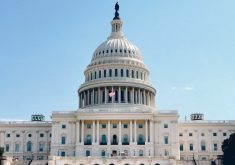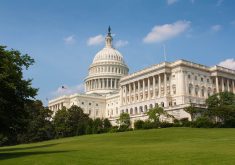WASHINGTON, D.C. (Reuters) — Farm subsidy reformers have praised a vote by the U.S. House of Representatives to make the wealthiest growers pay more for federally subsidized crop insurance.
It is the first eligibility limit on a program that costs $9 billion a year.
The non-binding House vote Oct. 11 will be a factor in upcoming negotiations with the Senate on a final version of the new farm bill, which is a year overdue.
Senators put a similar restriction on farmers with more than $750,000 adjusted gross income a year in their bill.
Read Also

Crop quality looks good this year across Prairies
Crop quality looks real good this year, with the exception of durum.
One percent of farmers, or 20,000 people, would be affected by the provision, estimated to save $1.3 billion over 10 years.
Crop insurance is the costliest part of the farm safety net. The farm bill would expand the program by up to 10 percent while cutting conservation and food stamps for the poor.
Farm bill negotiations were expected to begin soon, although no date was set.
The House named 29 of its members as its conferees on the $500 billion, five-year farm bill Oct. 12.
The Senate appointed its conferees weeks ago.
Farm bills, written every few years, fund crop subsidies, conservation, public nutrition, food aid, research, agricultural exports and rural economic development programs.
Crop insurance reform was the only farm bill “instruction” approved by the House during a series of votes that cleared the way for negotiations with the Senate.
The “sense of the House” resolution, approved on a voice vote, is an indication of lawmaker sentiment but conferees are not bound by it.
To reform-minded groups, the House vote was a step to rein in subsidy spending and help family farmers.
The Environmental Working Group, which wants more money for conservation, said the $750,000 adjusted gross income limit was a “modest” reform “to bring a measure of fairness to crop insurance subsidies.”















